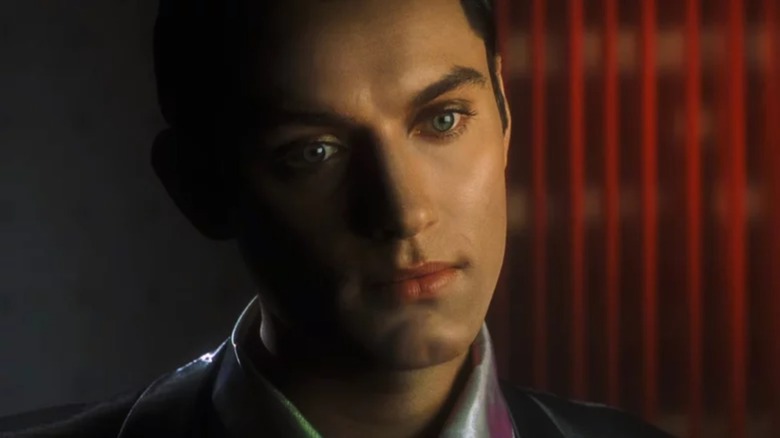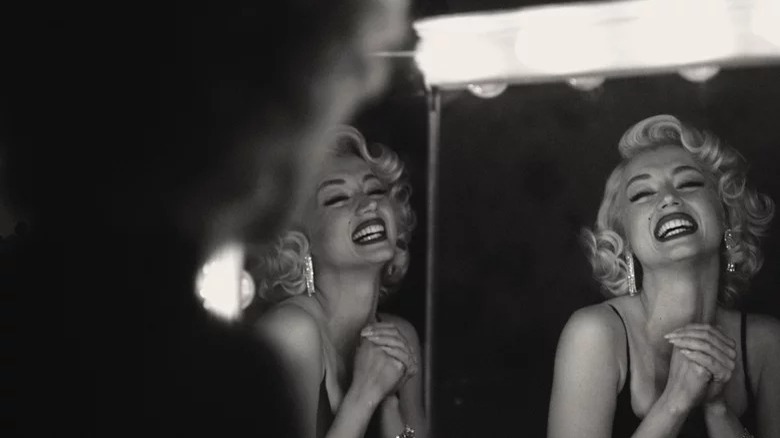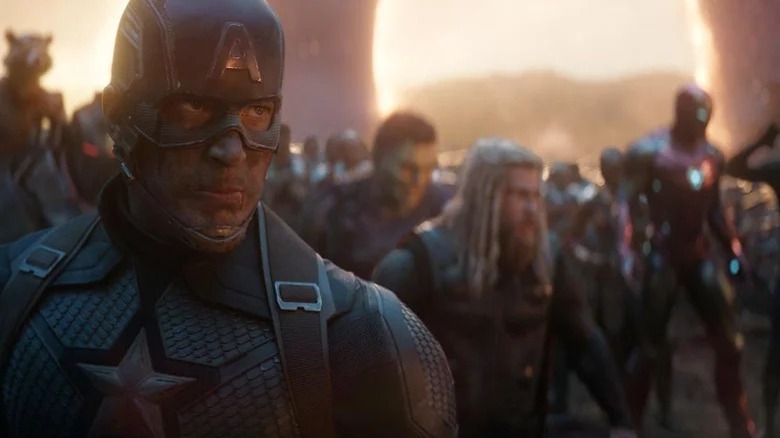Joe Russo Thinks AI Is The Future Of Storytelling — Please, God, No.
"Avengers: Endgame" filmmaker Joe Russo is once again thinking out loud about the future of movies. After proclaiming that theatrically released indie movies aren't the future in 2021 and stating that theaters, in general, might not be the future last year, Russo now has some thoughts on what the future of the medium does look like. His vision? Why, artificial intelligence, of course!
During a panel at the Sands International Film Festival moderated by Collider, Russo answered questions alongside Epic Games Chief Creative Officer Donald Mustard. The pair were in attendance to discuss the future of storytelling across film, TV, and video games, so naturally, the conversation wandered in a pretty unnerving direction when the pair were asked about how they think AI will influence these major mediums. Russo began answering the "mind-bending question" by explaining that, since there's been such an explosion in technology during Gen Z's lifetime, their relationship to new technologies is unique.
"We're not in a world where, you know, your uncle doesn't know how to send emails anymore," Russo shared. "We're in a world where the entire generation has a facile expertise in it, and is also not afraid of it." To that end, the filmmaker doesn't seem to be afraid of AI at all, but he goes on to describe a vision of future storytelling that certainly has scary implications for artists and actors. "Potentially, what you could do with it is obviously use it to engineer storytelling and change storytelling," Russo explained, "So you have a constantly evolving story, either in a game or in a movie, or a TV show."
A rom-com starring yourself and Marilyn Monroe?
The idea of an ongoing, personalized storytelling experience is kind of cool (although, in my opinion, it would take away the communal aspect of pop culture), but Russo immediately took it to an oddly ghoulish place with his example. " You could walk into your house and save the AI on your streaming platform," he said, according to Collider. For example: "'Hey, I want a movie starring my photoreal avatar and Marilyn Monroe's photoreal avatar. I want it to be a rom-com because I've had a rough day,' and it renders a very competent story with dialogue that mimics your voice."
That's right: Joe Russo's primary example of AI as the future of storytelling involves casting oneself in a love story opposite the image of a real-life dead celebrity whose public legacy is famously studded with exploitation and objectification. We literally just got done talking about how upsetting it is for people to mess with her image in particular, yet with the whole world of AI at our fingertips, Russo apparently imagines we'll all turn into Harry Styles' character in "Don't Worry, Darling."
Granted, the filmmaker doesn't actually seem to make an explicit judgment call about whether this scenario is a good thing or a bad thing, but it's a pretty nightmarish portrait he's painted here and he later went on to say he's "excited" about AI because it signals the "democratization of storytelling." He also explained that, in the Monroe example, the technology could mimic the user's voice so that "suddenly now you have a rom-com starring you that's 90 minutes long. So you can curate your story specifically to you."
He also thinks we'll see great AI movies in two years
Russo estimates that AI could create a movie that's good enough to be nearly indistinguishable from a regular film within two years. He also said the tech could personalize games as well, so that "you could curate your experience" by, according to his example, turning Fortnite into a horror game or making a game harder or easier based on AI characters' reactions to human players' choices. "How quickly we get there, I don't know, but that's where it's going," Russo said. The conversation doesn't seem to dig particularly deep into ethical and legal issues surrounding AI, including the fact that AI tech relies on stolen art and is set to steal millions of jobs, too.
The filmmaker does address the idea of what Collider calls "bad actors" in the system, but he seems to ultimately think AI is an inescapable future. "There are AI companies that are developing AI to protect you from AI," he explained, noting that he's a board member for more than one AI company. "Unfortunately, we're in that world, and you will need an AI in your life because whether we want to see it developed or not, people who are not friendly to us may develop it anyways."
Frankly, I'm starting to think that a theoretical uncle who was afraid of sending emails might have been right.


